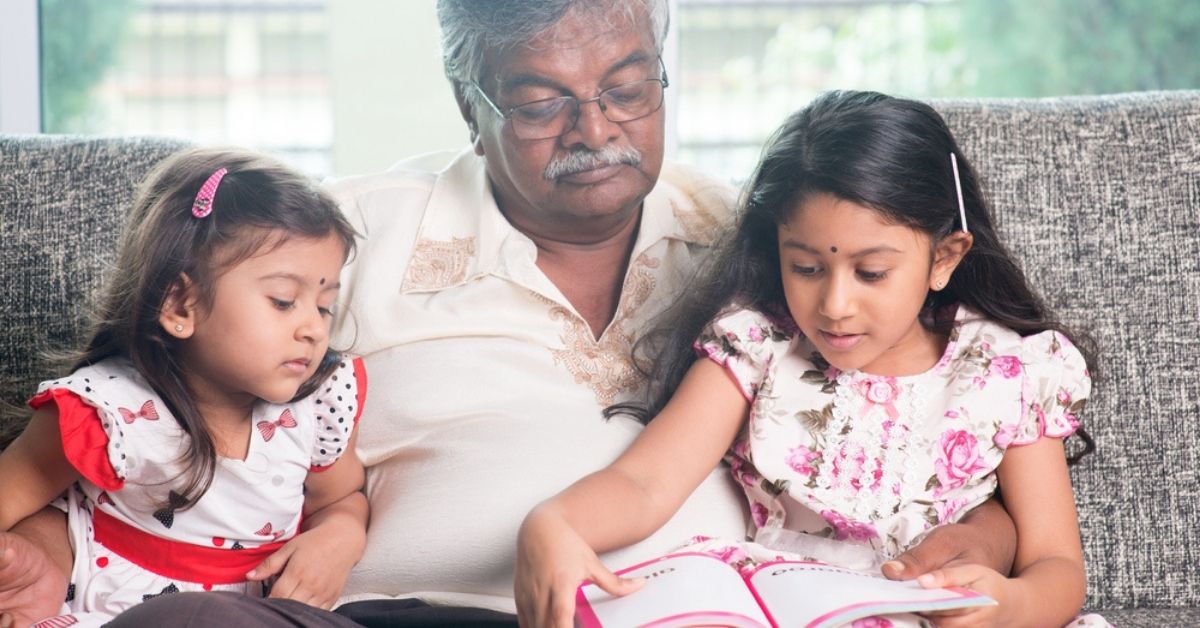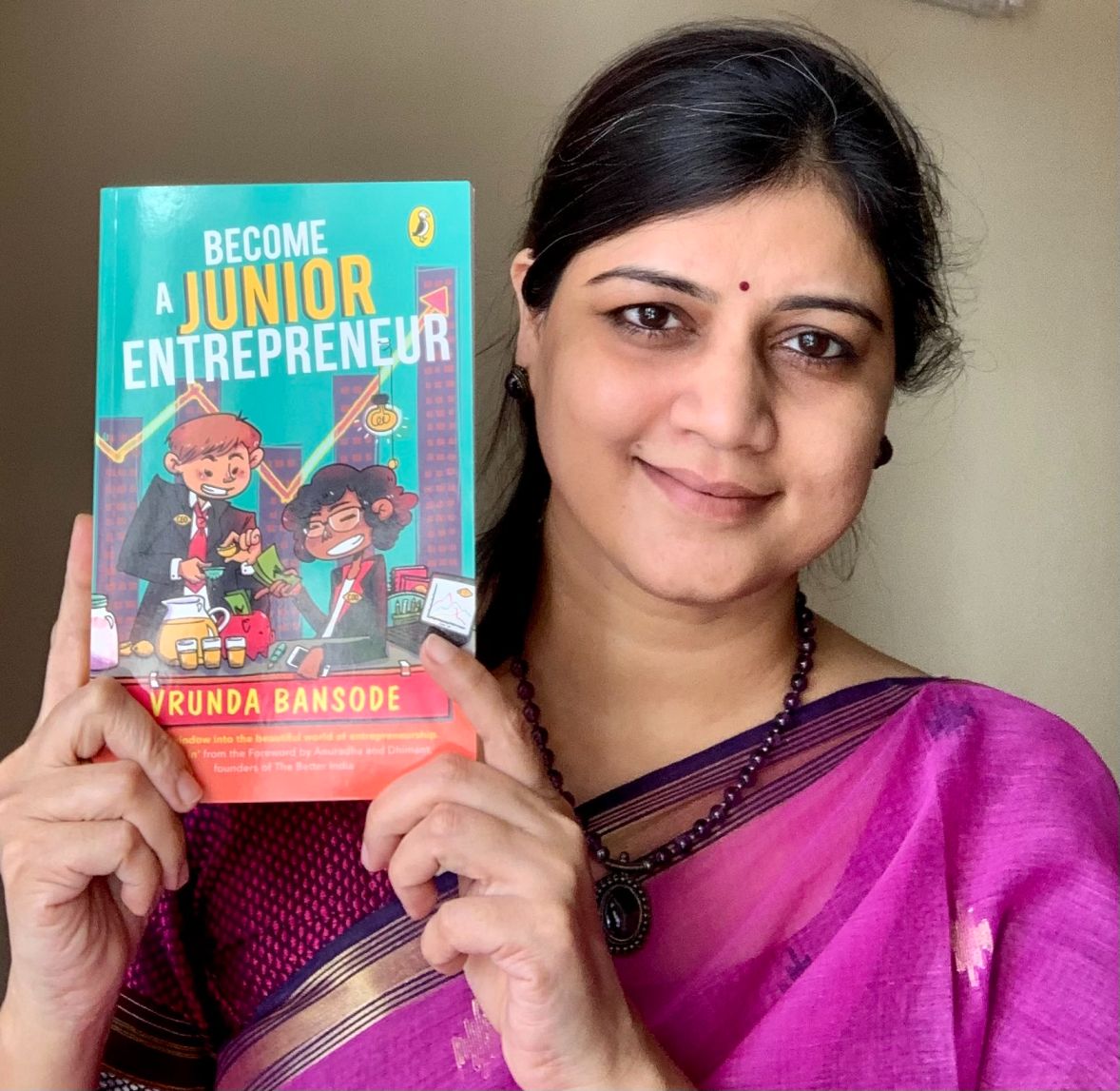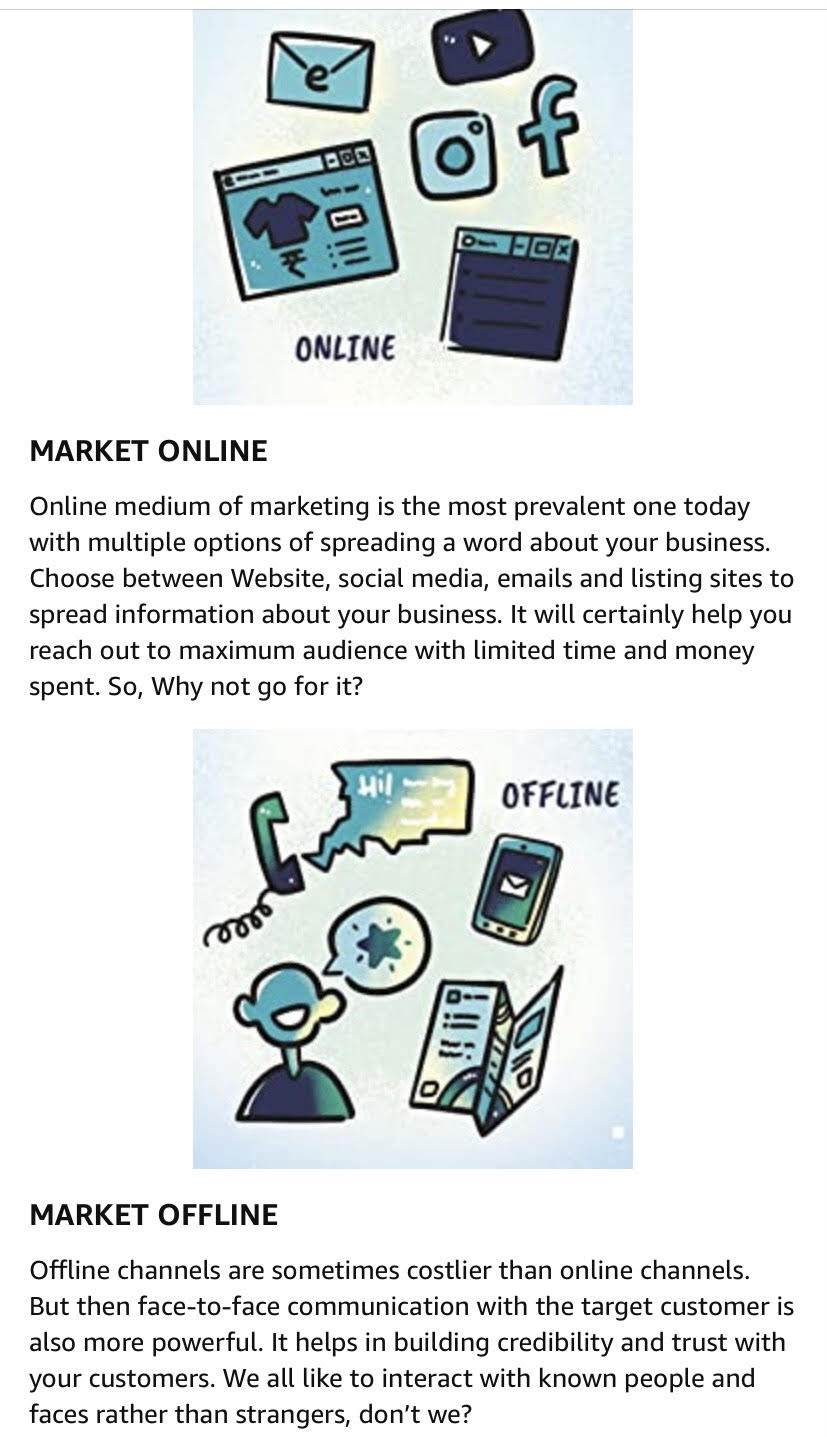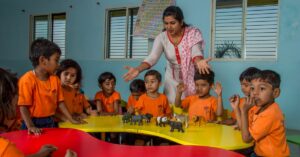“There Are No Readymade Answers”: Author Shares Skills Kids Need to be Entrepreneurs
From money management, work ethics to failures, Vrunda Bansode shares how certain life skills can help a child think like an entrepreneur.

Bengaluru-based Vrunda Bansode, the author of ‘Becoming a Junior Entrepreneur’, dons many hats. She’s a mentor, teacher, writer, marketing and brand manager, and a mother to two boys.
During COVID-19 times, all of us had to suddenly shift to a very different lifestyle which was made possible by online tools and e-commerce startups. What does it take to become one of those entrepreneurs shaping the lives of many?
“Leaping into the unknown without having all the answers, but at the same time, banking on your own conviction defines entrepreneurship,” says Vrunda, who holds a Master’s degree in Commerce and Economics from the University of Pune.
She adds, “Entrepreneurship is beyond learning theoretical components of the business. Incorporating basic life skills, like critical thinking, accountability, risk-taking and time management in a child’s daily routine can do wonders in unlocking their potential.”
In her professional career of 15 years, Vrunda, who co-authored ‘Becoming a Junior Inventor’ in 2015, has worked in MNCs, start-ups and social sector organisations, and has even co-founded ventures. She has managed incubation programmes at IIM Bangalore and entrepreneurship labs for high school students.
Drawing inspiration from her teenage years, as well as her first-hand experience of working with children, Vrunda has written a 160-page colourful book for kids above the age of 10 years. The book is divided into five chapters that mirror an entrepreneur’s journey: idea, product, money, promotion, and growth.

She explains basic business concepts like profits, break-even, marketing, revenue, team building and so on in an uncomplicated manner. To make it more relatable, she connects them with real-life businesses like Wildcraft, BookMyShow, Id Foods, Paperboat drinks, and more.
The Better India speaks to Vrunda to understand basic life skills that can help a child kickstart their entrepreneurial journey.
Helping Children Think Like An Entrepreneur
Did you know Warren Buffet sold chewing gum door-to-door as a kid before he became the CEO of Berkshire Hathway? Or that the popsicle and ear muffs were invented by children?
Now, these children did not undergo any courses to come up with life-altering inventions, and neither did they have parents who were successful entrepreneurs.
What helps is the right kind of environment.
“The ability to think for themselves and not have readymade answers by parents or teachers can help children make decisions and unleash their curiosity further. Raise children like they are lifelong learners and agile thinkers,” says Vrunda.

The child can start off with something as basic as setting up a lemonade stall, recycling waste paper to make sustainable jewellery, or even baking. If the child has an idea, no matter how bad it may be, let it bloom, she says.
Segregating tasks during the day, and giving each one a timeline helps the child understand time management. That being said, avoid keeping the time frame for the final goal, she adds.
This way, the child will know that overnight success is a myth and patience is a virtue.
Another paramount yet undermined life skill is an open channel of communication at home and in school.
“The child doesn’t necessarily have to be an extrovert or creative communicator. But learning the ability to convey a message effectively, without changing your personality, can be useful when working with people from various strata of society. This manifests into a clarity of thoughts and spontaneous interactions,” says Vrunda.
Effective communication also means being forthright and honest without fear of repercussions.
Honesty is an important work ethic that instils confidence in employees and promotes a healthy environment.
When it comes to money, Vrunda observes that most children are on either end of the spectrum – too scared to spend, or aware of its value. This is because no school textbook imparts the importance of budgeting, saving, planning and so on.

“We have to demystify the concept of money at a young age and explain how the economy works in simple terms, For example, tell them how an individual goes to work, gets paid, spend the same money and the cycle goes on. Let a child handle money in real life,” she says.
Sending kids to purchase groceries, showing discount ads in the newspaper or allocating monthly pocket money are some ways to learn money management, she says.
Giving an example of her school students, Vrunda mentions how they were given a limited sum of money to run a business. In the process, they figured out the cheapest vendors, cost-cutting, and effect of increased price on customers.
“One of the important lessons they learnt was reinvesting profits in the business to scale it. Working on a scarce budget also taught them how to negotiate, plan better, build networks and keep account of every expenditure. Setting up a small business during vacations can give the child a preview of becoming a successful entrepreneur,” she says.
Highlight the importance of failure
On the flip side, money also introduces failures. Even the most successful businesses suffer from losses, but it is their drive to bounce back that makes them stand out. Teaching children how to cope with failures is a crucial life skill.
“Setbacks foster creativity and critical thinking. Instead of shouting at the child, ask what the takeaways are and nurture them,” she says.
These skills are only a drop in an otherwise vast ocean that can shape future entrepreneurs.
Even if the child does not want to be an entrepreneur, these skills go hand in hand with overall personality development, which can help them succeed later in life.
Edited by Divya Sethu
This story made me
-
97
-
121
-
89
-
167
Tell Us More
We bring stories straight from the heart of India, to inspire millions and create a wave of impact. Our positive movement is growing bigger everyday, and we would love for you to join it.
Please contribute whatever you can, every little penny helps our team in bringing you more stories that support dreams and spread hope.



















